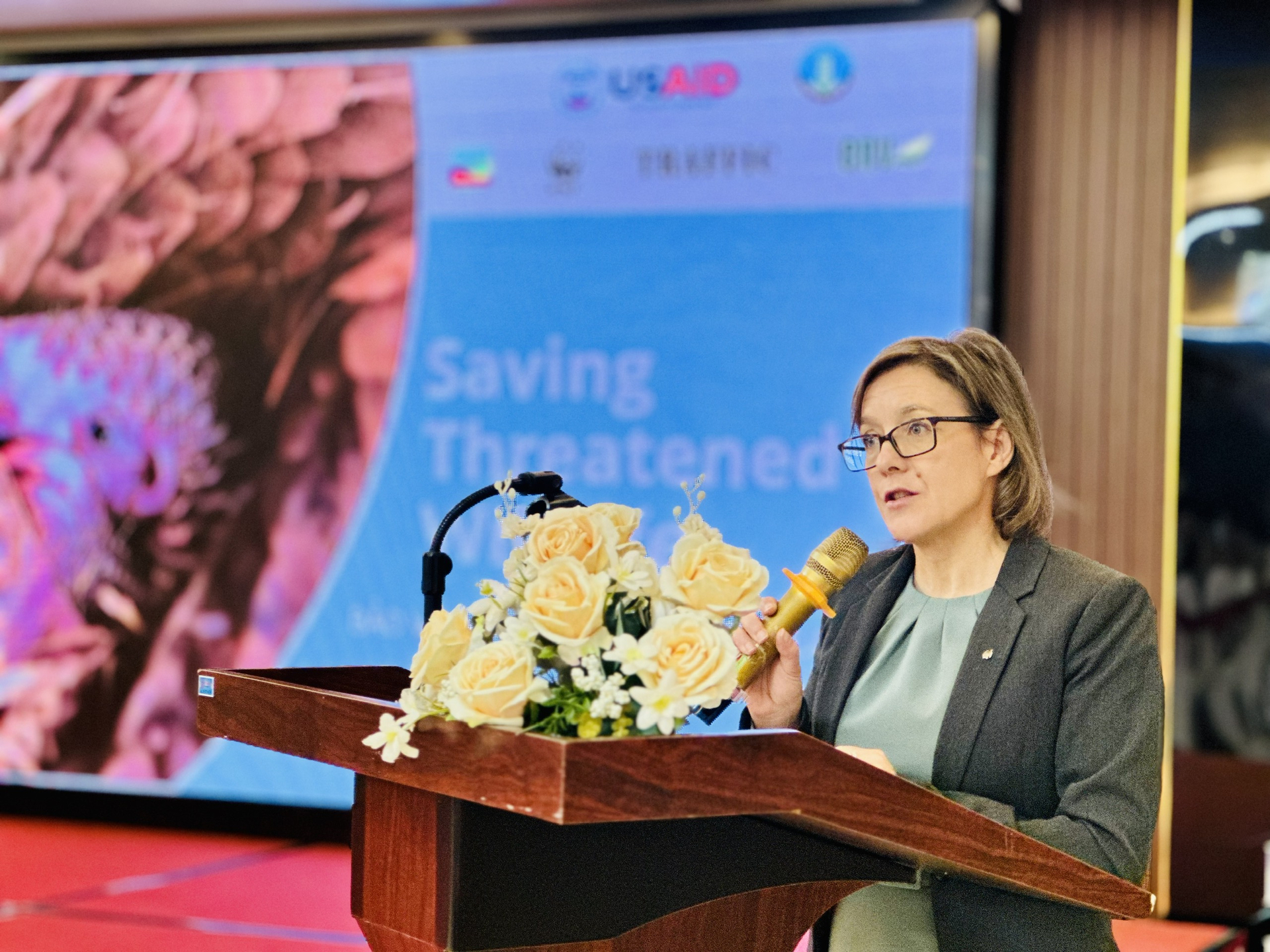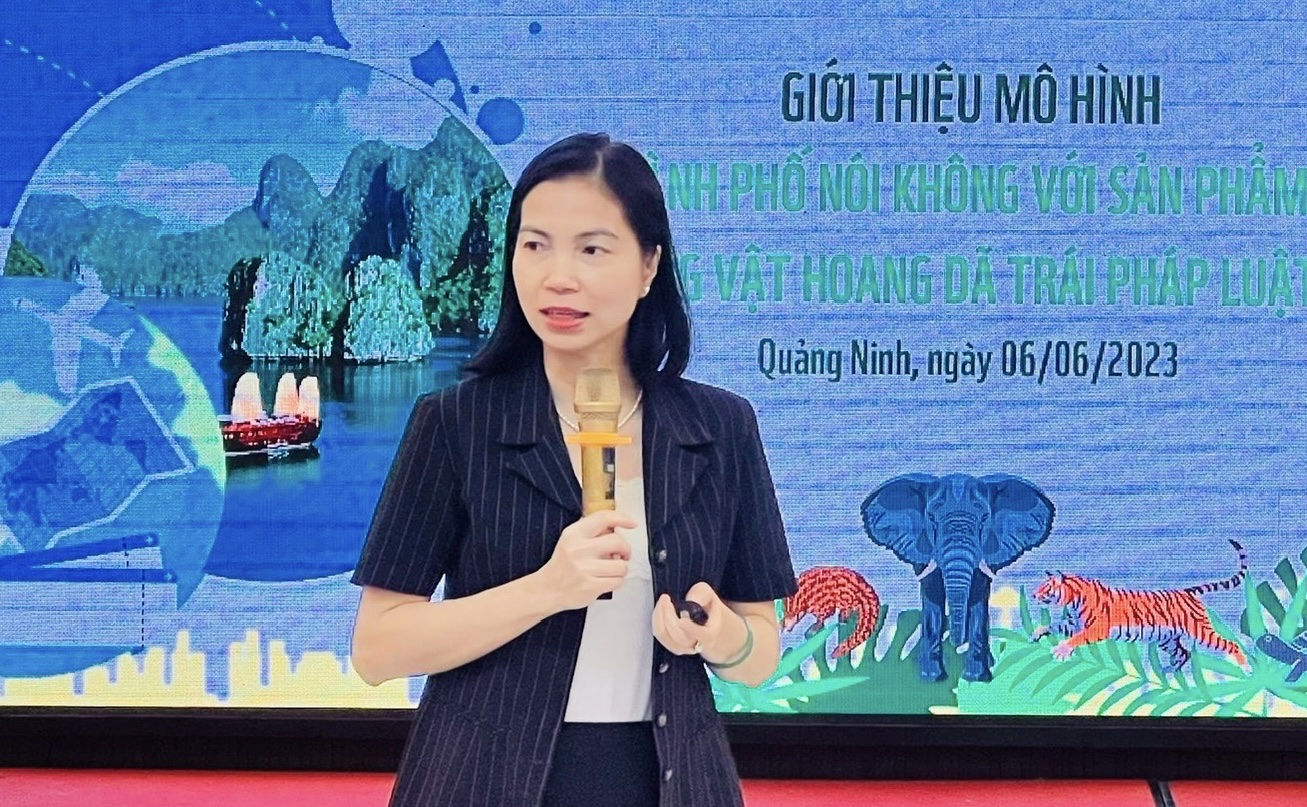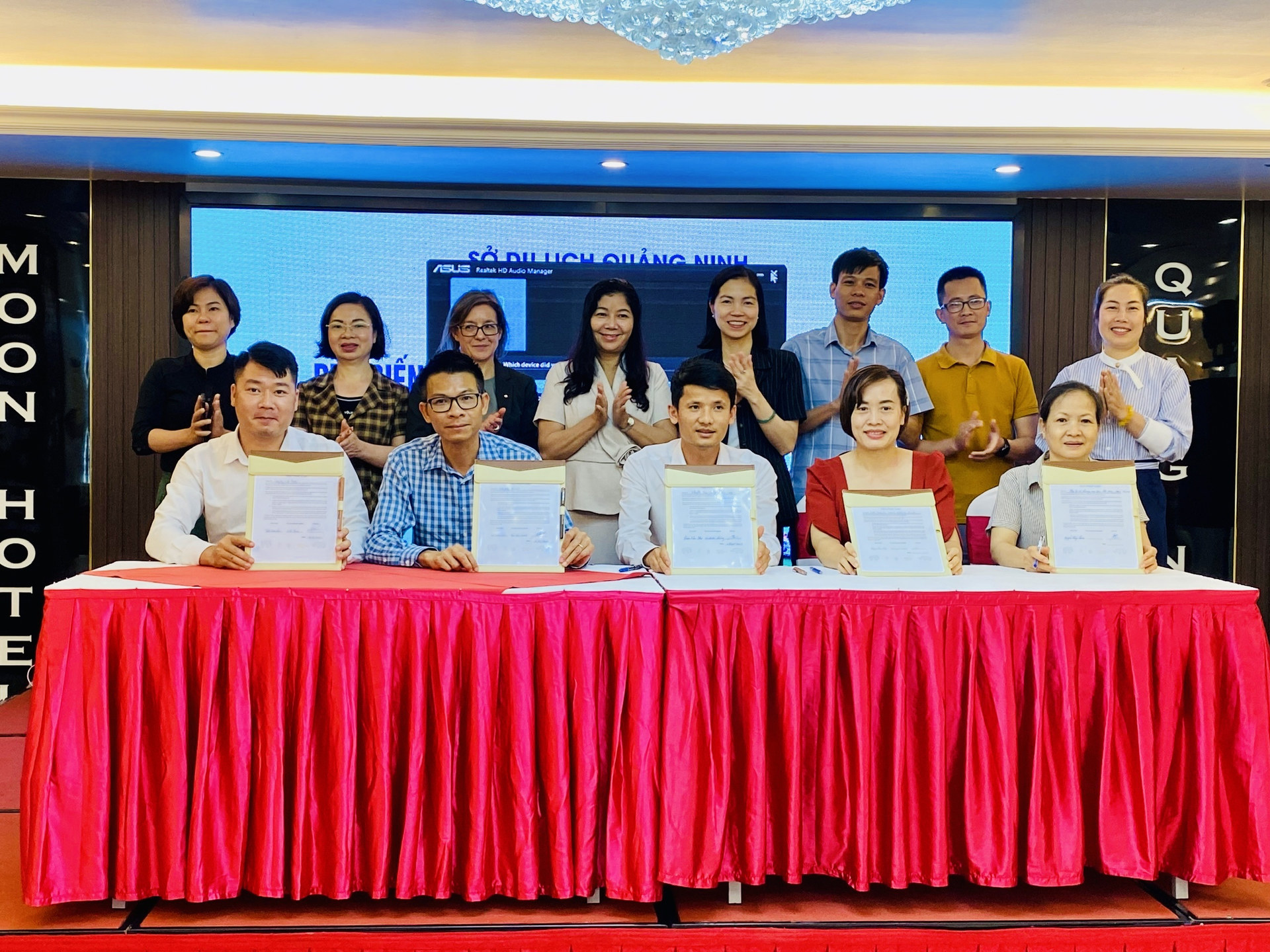November 1, 2025 | 02:18 GMT +7
November 1, 2025 | 02:18 GMT +7
Hotline: 0913.378.918
November 1, 2025 | 02:18 GMT +7
Hotline: 0913.378.918
The Enterprise Development Foundation under Vietnam Chamber of Commerce and Industry (EDF/VCCI) and Quang Ninh province's Department of Tourism held a consultation workshop with the local tourism sector. The workshop aims to address the illegal trade of wildlife as well as promote drastic actions against illegal wildlife products.

Michelle Owen, Director of the WWF Endangered Wildlife Project Office spoke at the workshop.
The workshop was organized within the framework of the Saving Threatened Wildlife Project sponsored by the United States Agency for International Development (USAID). Accordingly, the Management Board of Forestry Projects under the Ministry of Agriculture and Rural Development collaborated with WWF and TRAFFIC to organize the event.
Over 80 delegates from Quang Ninh province's cities and districts, tourism specialists, tourism associations, and representatives from hotels, restaurants, cruise ships, seaports, and travel agencies participated in the workshop.
Vietnam's tourism sector has been slowly recovering from the impact of the Covid-19 pandemic. Vietnam expects to welcome 110 million tourists, including 8 million international visitors, in 2023. The number of Chinese tourists is expected to reach 4.5 million, which is equal to 50-80% of the number of tourists before the pandemic.

Ms. Le Thi Thu Thuy, Deputy Director of the Enterprise Development Foundation (VCCI).
However, this recovery has also been accompanied by concerns that a surge in domestic and international tourists will increase demand for ivory and other illegal wildlife products.
EDF/VCCI, in collaboration with the USAID Saving Threatened Wildlife Project and Quang Ninh province's tourism sector, took actions to reduce the need to trade and consume the illegal wildlife products. Consequently, the province will develop towards sustainable and environmentally conscious tourism.
Ms. Le Thi Thu Thuy, Deputy Director of the Enterprise Development Foundation (VCCI), commented: “Businesses can reinforce their image by performing social responsibility, which includes the protection of the environment and wildlife. As a result, businesses can enhance their competitiveness in both domestic and foreign markets".

Businesses signing a commitment to not participate in illegal wildlife trade.
Participants at the workshop also discussed the implementation of drastic actions against illegal wildlife products in Quang Ninh province.
The goal of this initiative is to build a city model that places wildlife protection at the heart of green and sustainable tourism development.
This model has received significant support from local organizations, associations, businesses and communities participating in the workshop. Quang Ninh province's Department of Tourism and VCCI have expressed their commitment to pilot the model in Quang Ninh.
Michelle Owen, Director of the WWF Saving Threatened Wildlife Project Office, emphasized that the aforementioned pilot model is progress towards preventive countermeasures against wildlife trafficking.
Vietnam's tourism sector is becoming more appealing to environmentally conscious tourists because the country is no longer a destination for illegal wildlife goods.
Translated by Nguyen Hai Long

(VAN) After years of intensive cultivation, agricultural soils are becoming exhausted. Efforts to restore soil health and regenerate soil ecosystems are now being initiated.

(VAN) Expanding the smart coffee cultivation model not only contributes to increasing farmers’ income but also enhances climate change adaptation in the Central Highlands.

(VAN) A comprehensive MRV process for high-quality rice cultivation has been finalized and is now ready to accurately measure and assess emission reductions.

(VAN) Hundreds of thousands of hectares of aging, low-yield coffee in the Central Highlands have been 'rejuvenated' through the replanting program, delivering significantly higher productivity than before.
/2025/10/29/2359-1-171705_4.jpg)
(VAN) Wood plastic composite made from recycled plastic combined with wood and stone powder is being piloted, with the expectation of collecting and recycling a large volume of plastic waste each year.

(VAN) The FAO-funded project aims to control banana wilt disease nationwide, with five key outcomes targeted toward sustainable banana production.

(VAN) The Integrated Plant Health Management (IPHM) helps farmers in Quang Ngai increase rice production efficiently and sustainably.